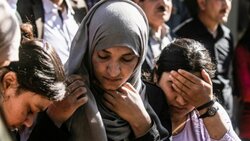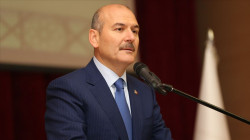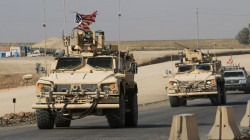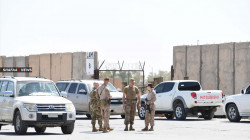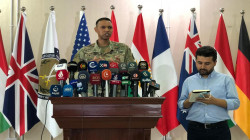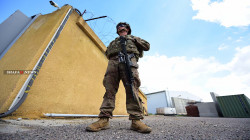Anticipation in Iraq for US moves in the region
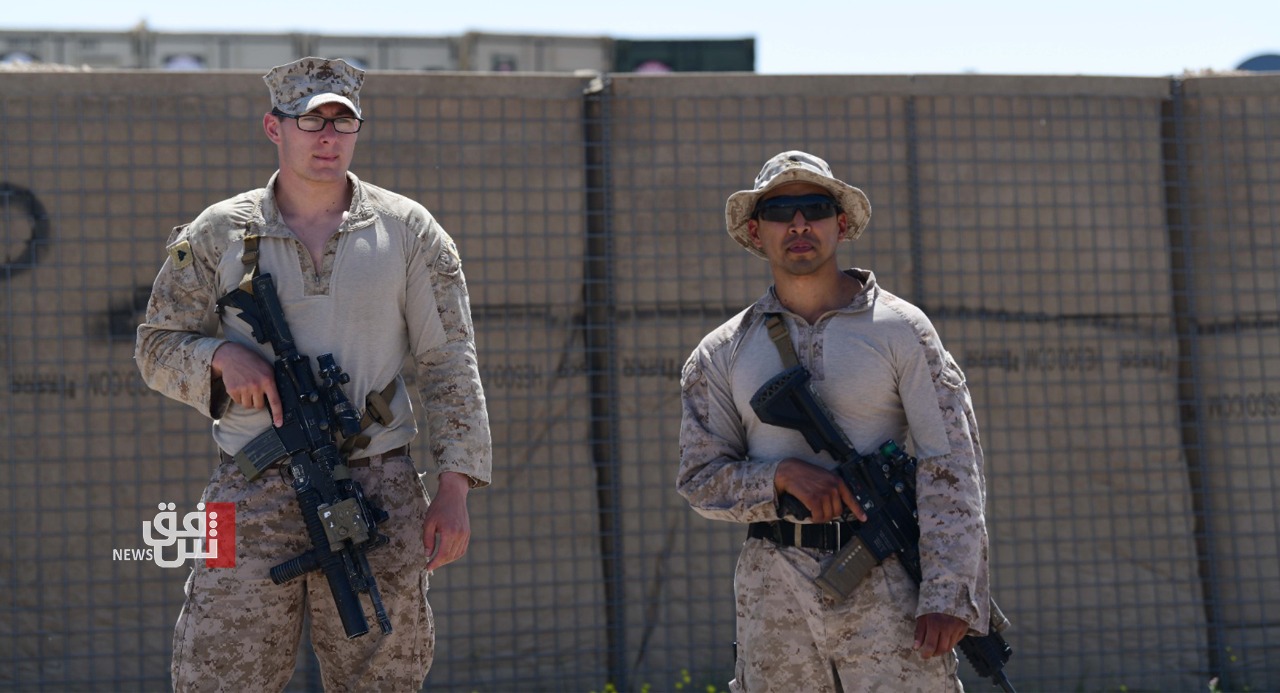
Shafaq News/ The United States has deployed additional military forces along the border between Iraq and Syria, sparking speculation about the underlying motives behind this reinforcement and raising concerns about a potential escalation in the region.
Over the past few days, American troops have introduced armored vehicles and soldiers to the Syrian border, entering from the Iraqi side and positioning near the city of al-Qa’im, adjacent to the border town of Al Bukamal along the Euphrates River.
The Global Coalition, led by Washington, has simultaneously conducted military exercises involving fighter aircraft at the "Koniko" base located in the northern outskirts of Deir ez-Zor.
In a parallel development, the political wing of Iraq's Asa'ib Ahl al-Haq movement, led by Qais al-Khazali, revealed that around 2,500 US soldiers have recently entered Iraqi territory and are now stationed at the Ain al-Assad Air Base. This deployment coincides with the presence of military vehicles and combat aircraft in the area.
These US reinforcements align with reports of the Syrian army dispatching additional units from the 17th and 18th divisions to the al-Mayadin region in the eastern outskirts of Deir ez-Zor, near the Iraqi border, according to what the Syrian Observatory for Human Rights has reported on this development.
According to the observatory's report, these reinforcements were deployed to compensate for the losses suffered by the division engaged in the most severe assault by ISIS in the al-Mayadin desert region. Additionally, these measures were taken in anticipation of a potential attack, prompted by information suggesting an impending military confrontation between US forces on one side and Iranian militias on the other in Deir ez-Zor.
While the official intentions behind these military movements remain elusive, Iraqi security analyst Sarmad al-Bayati suggests that despite the declared objective of safeguarding American interests, the specific nature of future actions remains uncertain.
Al-Bayati stated, "Speculation leans towards potential operations within Syria, considering the prerequisite coordination with the Iraqi government, given Iraq's strategic role. However, amidst prevalent conjecture, the actual objectives remain obscure."
Maj. Gen. Matthew W. McFarlane, in charge of "Operation Inherent Resolve" under the Joint Task Force in Iraq and Syria, disclosed that the coalition closely monitors online "threats" emanating from Iraqi groups that could target international military installations.
In an exclusive online briefing from Baghdad, Maj. Gen. McFarlane affirmed "Readiness to respond" to these groups. He further highlighted that the ideology of ISIS continues to pose a threat and noted its aspiration to regain its military capabilities.
Geographical isolation
Meanwhile, Syria's "al-Watan" newspaper has reported media accounts indicating that the US forces stationed at the Ain al-Assad base in Iraq's western al-Anbar governorate contemplate the closure of the border strip with Syria.
Political Advisor Nader Armila emphasized the broader context, indicating that amidst global political shifts, each stakeholder seeks to assert dominance in Syria. Armila noted that the US aims to protect its Kurdish allies and gain control over Qamishli's oil fields.
"The US seeks to counterbalance and restrict Iranian expansionism, curbing Turkish influence in northeastern Syria, while addressing undesirable elements in this strategically crucial area. This objective intends to check both Russian and Turkish sway, preventing Syria from regaining control."
In the broader Middle East context, Iraqi security and strategy expert Ahmed al-Sharifi concurred that this signifies "geographical containment." He highlighted the US strategy of isolating terrestrial links between Iraq, Iran, Syria, Lebanon, and even Palestine, beginning with pivotal border areas like Al-Qa’im and Al Bukamal.
Al-Sharifi elaborated that this US redeployment extends beyond Iraq, indicating preparations for potential "special operations" aiming to disrupt ground-based logistical support for Syrian factions.
"Current aerial operations predominantly target Iranian proxies in Syria, with the possibility of extending into Lebanon through a Hezbollah-Lebanon conflict."
Amidst these circumstances in Iraq, al-Sharifi stated that "if the factions in Iraq are influenced by the developments occurring in Syria and Lebanon and become active, it cannot be ruled out that the US would respond by targeting their command centers and control points."
Al-Sharifi affirmed, "However, if the Iraqi government, represented by Prime Minister Mohammed Shia al-Sudani, manages to prevent the factions from engaging in direct confrontation or threatening US interests in Iraq, then the Iraqi landscape will remain secure and stable."
Controlling Iranian factions
On the other hand, Professor Hassan al-Momani, an expert in international relations and conflict resolution at the University of Jordan, pointed out that "the US presence in Syria serves as a deterrent to the armed factions loyal to Iran in the country, particularly given reports that the US has urged Iran to control these factions and refrain from attacking American forces, as previously occurred in targeting the Global Coalition forces."
Al-Momani emphasized to the Shafaq News Agency that "everyone seeks de-escalation and avoids military confrontation, but if confrontations do occur, they will undoubtedly impact security in Iraq. The instability in Syria has negative repercussions on Iraq, especially since some of these factions have extensions into Iraq, with Iran being the common denominator."
